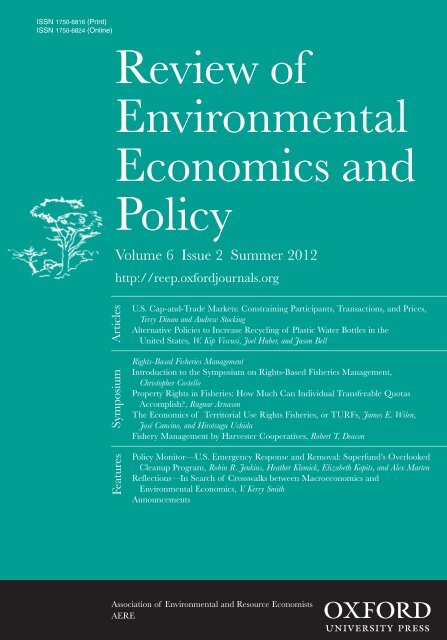走向最佳肉类价格:现在是对肉类消费征税的时候了吗?
IF 6.6
3区 经济学
Q1 ECONOMICS
引用次数: 18
摘要
众所周知,畜牧业对气候变化有重大影响,并对全球氮循环和生物多样性产生负面影响。然而,对调节肉类生产和消费的经济有效政策的研究很少。在畜牧业缺乏第一好的政策工具的情况下,对肉类征收第二好的消费税可以同时解决多种环境外部因素,并改善与饮食相关的公共健康。在这篇文章中,我们回顾了肉类社会成本的经验证据,并检验了高收入国家对肉类消费征税的理由。我们从公共、行为和福利经济学的角度来处理这些问题,特别关注(1)肉类生产和消费的多重环境外部性的相互作用,(2)“替代蛋白质”技术,(3)对人类健康的不利影响,(4)动物福利,以及(5)肉类税的分配影响。我们对与肉类消费相关的环境社会成本进行了初步估计,发现肉类的价格明显偏低。最后,我们确定了未来最佳肉类税收研究的几个方向。本文章由计算机程序翻译,如有差异,请以英文原文为准。
Toward Optimal Meat Pricing: Is It Time to Tax Meat Consumption?
Livestock is known to contribute significantly to climate change and to negatively impact global nitrogen cycles and biodiversity. However, there has been little research on economically efficient policies for regulating meat production and consumption. In the absence of first-best policy instruments for the livestock sector, second-best consumption taxes on meat can address multiple environmental externalities simultaneously as well as improve diet-related public health. In this article, we review the empirical evidence on the social costs of meat and examine the rationales for taxing meat consumption in high-income countries. We approach these issues from the perspective of public, behavioral, and welfare economics, focusing in particular on (1) the interaction of multiple environmental externalities of meat production and consumption, (2) “alternative protein” technologies, (3) adverse effects on human health, (4) animal welfare, and (5) distributional effects of meat taxation. We present preliminary estimates of the environmental social costs associated with meat consumption and find that meat is significantly underpriced. We conclude by identifying several directions for future research on optimal meat taxation.
求助全文
通过发布文献求助,成功后即可免费获取论文全文。
去求助
来源期刊
CiteScore
10.80
自引率
0.00%
发文量
25
期刊介绍:
The Review of Environmental Economics and Policy fills the gap between traditional academic journals and the general interest press by providing a widely accessible yet scholarly source for the latest thinking on environmental economics and related policy. The Review publishes symposia, articles, and regular features that contribute to one or more of the following goals: •to identify and synthesize lessons learned from recent and ongoing environmental economics research; •to provide economic analysis of environmental policy issues; •to promote the sharing of ideas and perspectives among the various sub-fields of environmental economics;

 求助内容:
求助内容: 应助结果提醒方式:
应助结果提醒方式:


